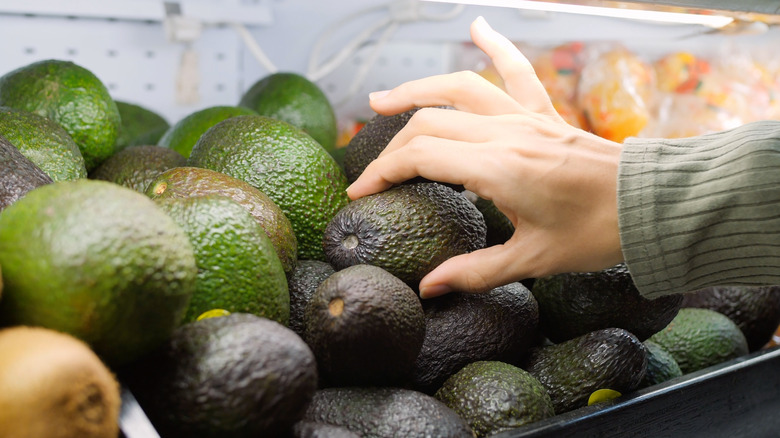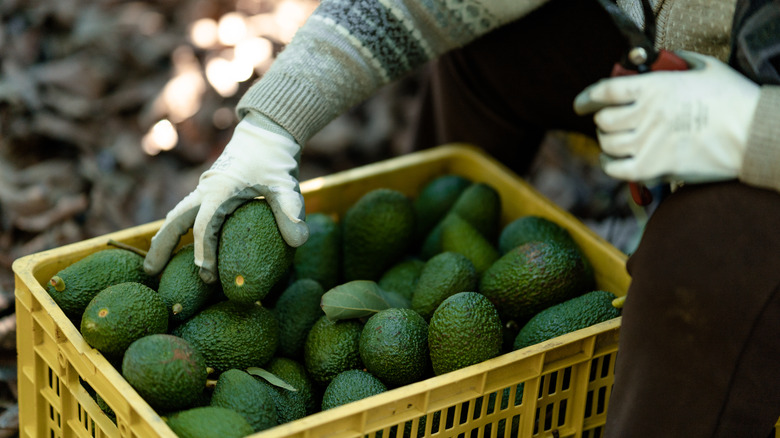The U.S. Just Ended Its Mexican Avocado Ban
On February 11, 2022, an American agricultural inspector working in Michoacán, Mexico, the only location where the United States accepts avocado imports, received what was determined to be a credible anonymous threat to their safety. In response, the United States announced they would be suspending avocado imports from Mexico, according to the Guardian. However, just one week after the ban was put into place, the U.S. Department of Agriculture's Animal and Plant Health Inspection Service (APHIS) has announced they will be lifting the ban on avocados imported from Mexico.
APHIS has said that the "safety of USDA employees simply doing their jobs is of paramount importance" and that they have "enacted additional measures that enhance safety for ... inspectors working in the field." They went on to say they are "working closely" with a number of different organizations, including the U.S. Embassy, the Association of Avocado Producers and Packers Exporters of Mexico (APEAM), and Mexico's national plant protection organization.
The price of avocados in the United States is expected to rise
The United States receives about 80% of Mexico's avocado imports, which amounts to about $2.56 billion annually (via the Guardian). APEAM explained that the ban on Mexican avocados disrupted the supply chain on both state and national levels, and "likely resulted in a cost of more than $120 million in the United States," according to Eater. While the brief ban likely won't have an extensive long-term impact, Americans can expect to see a short-term spike in avocado prices. Inflation also accounts for some of the increased prices, with the cost of an avocado having risen from $1.05 apiece in January 2021 to about $1.36 in January of 2022.
News of the ban's end was met with some relief from some small U.S. business owners, who feared the repercussions of having to rely solely on avocados grown in California to meet their needs. "Avocados will come from California but the feeling is that the state will hoard them and there will potentially be very little for other states," Tracy Vaught, the owner and operator of five Houston-based restaurants, explained to Al Jazeera.

